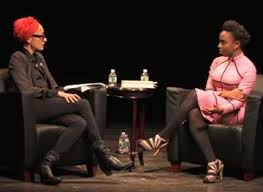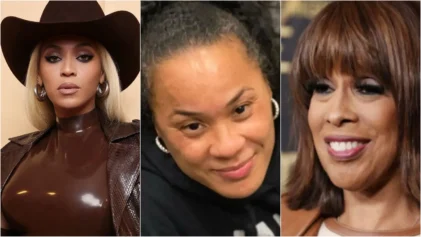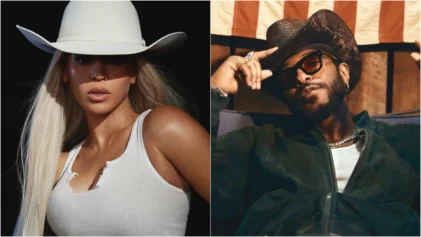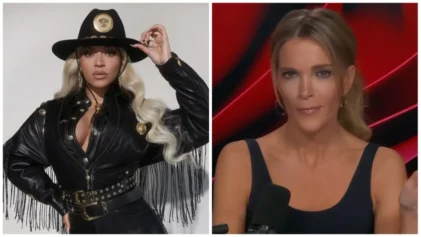
Adichie’s novel Americanah, a kaleidoscope of feminist manifestos, recently won the National Book Critics Circle prize for fiction. While this maintained her position in literary and academic circles, Adichie’s conversations on feminism, notably her 2009 TED Talk, have taken her from written pages to worldwide stages, specifically that of high-voltage pop star Beyonce.
Beyonce, who sampled Adichie’s proclamation of feminism on her smash anthem, “***Flawless,” opened the floor for social conversations on feminism to a pop-culture audience who have been historically marginalized in the discussion.
Beyonce Answers Adichie’s Call to Feminism
“I think that anything that gets young people talking about feminism is a very good thing,” Adichie said yesterday.
Beyonce indeed had people talking. Conversations sparked on blogs, news sites and social media about what it means to be feminist, especially considering the star’s avid freedom of sexual expression. Many critics say hyper-sexuality and feminism cannot occupy the same ideological space. But Adichie said during her conversation with Smith that this notion is archaic, and Beyonce, as an artist, is helping to transform this understanding.
Adichie held firm to the opinion that any woman who names herself a feminist is a feminist, including Beyonce if she chooses that label. Her overt sexuality only adds to the ownership of her personal identity, it doesn’t support performing for the “male gaze” that is in direct opposition to feminism, Adichie added.
“If a woman is sexually overt is she still feminist? It’s a question that…obviously for me, the answer is yes. But also in a larger sense, I’m not interested in policing feminism either. I have such a problem with the idea of people saying things like, ‘Oh she’s not feminist because of blah blah blah,'” Adichie said.
“Whoever says they’re feminist is bloody feminist. And I just feel like we live in a world where more people need to be saying it and we shouldn’t be looking to pull people out of the feminist party. And I think the reason I find myself reacting so strongly to questions of female sexuality is … there’s something very disturbing to me about the idea that a woman’s sexuality somehow is not hers. So when certain feminists who will say, it’s about the male gaze, it’s for the man, there’s a kind of a self-censoring about that that’s similar to what they’re fighting.
“So as long as women have the choice…why shouldn’t women own their sexuality? Why shouldn’t a woman who does whatever with her sexuality identify as feminist? I’ve just always found that very troubling. It’s almost un-feminist to make that argument that if you shake your booty, you’re not feminist.”


